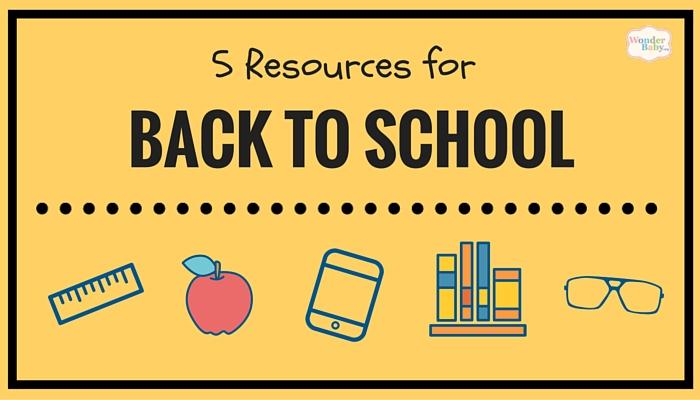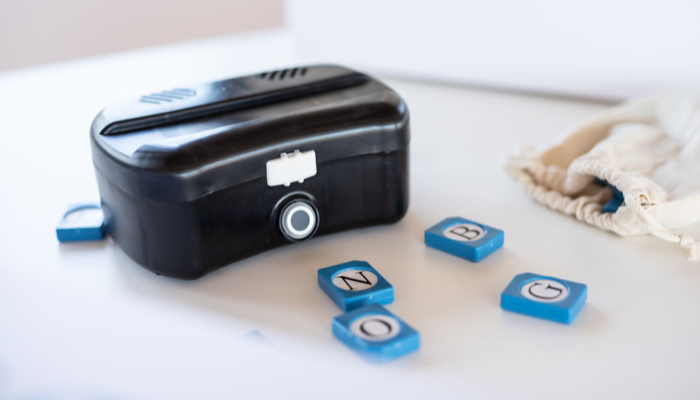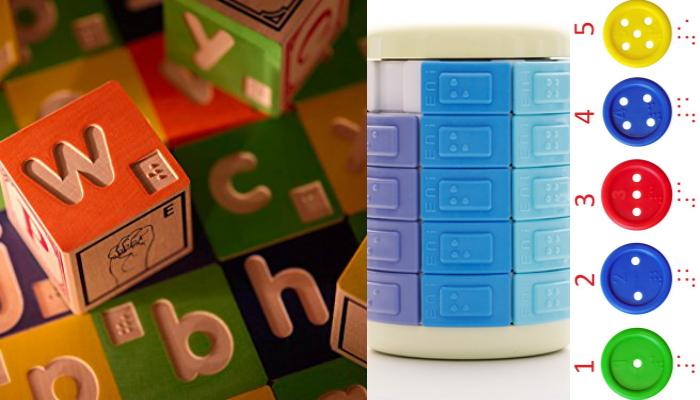5 Back-to-School Resources for Kids with Visual Impairments and their Families

It’s That Time of Year!
Going back to school after a fun-filled summer can be exciting for your child, but it can be a lot of stress and anxiety for you! For you, “back to school” means filling out endless forms, rewriting your child’s complete medical history for the millionth time, preparing for the dreaded IEP meeting soon to come, and the knot in your stomach for the long list of still unanswered questions. Or, maybe you’re one of the lucky ones who feels organized and confident this year and the unknowns simply lie in what will come… “What will the new teacher be like? Are the therapists going to work well with my child? How will his classmates behave around him?”
The list of questions may go on and on but there is still plenty you can do to help this year start off great! We’ve rounded up a few of the best WonderBaby.org articles and resources to help parents prepare, as well as prepare their children and the school, for the Back-to-School Season. While we unfortunately can’t control every detail, these tips will ensure you spend less time feeling the pressure and more time soaking in the sheer happiness of having a child in school! After all, isn’t that the way it should be?!
Every IEP meeting is different. So, while you’re juggling the school district, legal jargon, and jotting down every possibility of what should be, could be, and needs to be, it’d be great to have a strategy! In this article, fellow parent, Jennie, shares her strategies for a successful IEP meeting for parents of children who are blind or have vision impairments.
 Bringing Blindness Awareness to the Sighted Classroom
Bringing Blindness Awareness to the Sighted Classroom
A big part of a successful school year is having your child feel comfortable and welcome at school. A great way to do that is for her classmates to understand more about why your child may do some things differently and how she uses her cane around the classroom. This article will give you some tips on how to teach sighted children about blindness so they can interact with their blind classmates.
 Making the Most of Your Most Restrictive Environment
Making the Most of Your Most Restrictive Environment
Are you struggling to decide what school you want your child to attend? Or, maybe the struggle is with the school district? If you want to know more about how to handle “least restrictive” and “most restrictive environments”, read how Megan and her family devised a creative plan for their daughter Ava. They chose to start her education in a private placement at a preschool for the blind, but group her with other kids planning to transition to a mainstream kindergarten classroom. Megan explains how the plan worked.
 Making Circle Time Accessible for All Students
Making Circle Time Accessible for All Students
One key to inclusion in the classroom is using products that are truly accessible. This lesson plan from UAH Rise School incorporates the LightAide device into a preschool class’s daily morning circle time routine. During this group time, the students are exposed to both verbal and sign language, social interaction and weather identification as well as calendar concepts, counting and number recognition. The addition of the LightAide device allows students with low vision, cognitive disabilities and other special needs who respond to interactive displays of colored lights to participate more independently in the morning circle time activities.
 Planning the Day with Object Calendars
Planning the Day with Object Calendars
Tangible object calendars are ideal for a number of students (including those who do not read print or Braille fluently) and for so many reasons! Object calendars can help students prepare for the day, transition from one activity to another, encourage tactile exploration, and work on executive functioning skills. If your child uses a similar system at school, you may also want to consider having one for his schedule at home. This article tells you how to make the most of using object calendars to plan the day!
Do you have suggestions for other parents with kids going back to school? Let us know in the comments section below! You may also like to follow our Back to School for Children with Visual Impairments board on Pinterest for more ideas on making this school year the best year yet!

Related Posts

Visual Impairment
The Gift of Understanding: How a Young Child Helps His Blind Father Navigate Life
When a parent is blind, it’s natural for people to wonder how their sighted child will adapt. Will they struggle to understand their parent’s needs? Will they feel burdened by...

Braille and Literacy
Making Braille Fun: Introducing Handi Exceller’s Innovative Learning Tools for Blind Students
Handi Exceller was born from a simple idea: learning braille should be both fun and accessible. The company creates interactive and gamified ways to teach braille.

Braille and Literacy, Toys, Visual Impairment
24 Braille Toys for Kids Who are Blind
Everything from alphabet blocks to raised line coloring pages and activity books to puzzles to card and board games... and so much more! And it's all in braille ready for...
